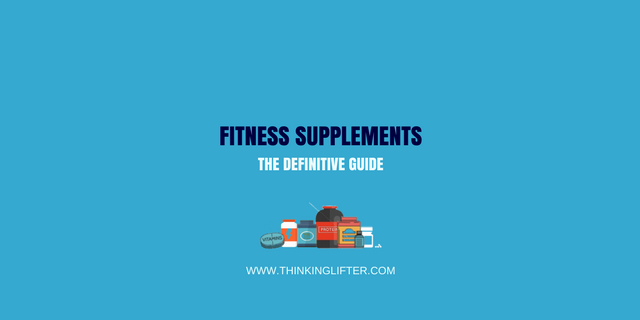
This is the most comprehensive fitness supplementation guide online.
In it, you’ll learn everything you need to know ranging from protein powders and BCAAs, all the way to multivitamins, pre-workouts, and more.
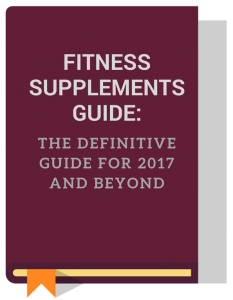
Don’t have time to read the whole guide right now?
Download a FREE PDF version of this fitness supplements guide.
(PDF contains all chapters and resources + bonus chapter: Supplement Recommendations from trusted brands)
More...
Chapters
Do You Need Any Supplements to Get Results?
What exactly are supplements and are they the holy grail of results?
Are they an irreplaceable part of the whole fitness journey?
Can they bring you results, without you having to put (as) much effort?
The answer to all these questions is a firm NO.
You don’t need supplements to make great gains and achieve the height of your genetic potential. And they don’t have the magic power to outdo bad nutrition or half-hearted training.
But..
They can play their helpful part in the whole process and give you a slight edge.
What most people get wrong is thinking that supplements are 30-50% of what it takes to make great gains. In reality, they are more like 10%.
Take a look at some of the best bodybuilders from the 19th and early 20th century:
Eugen Sandow:
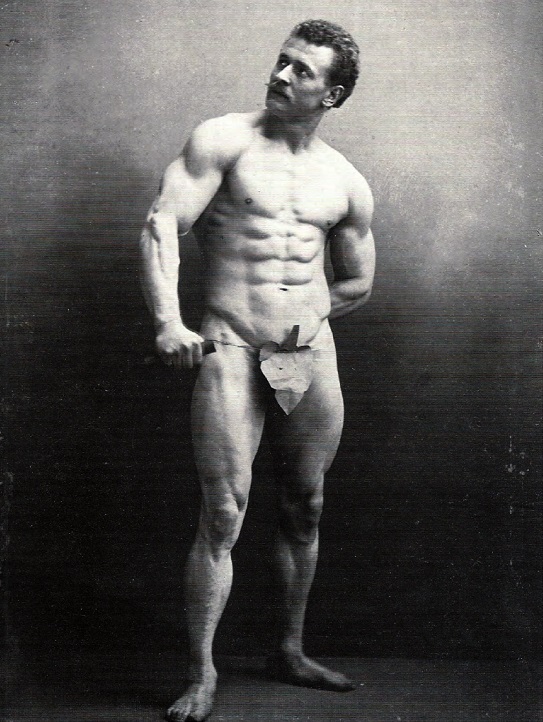
Monte Saldo:
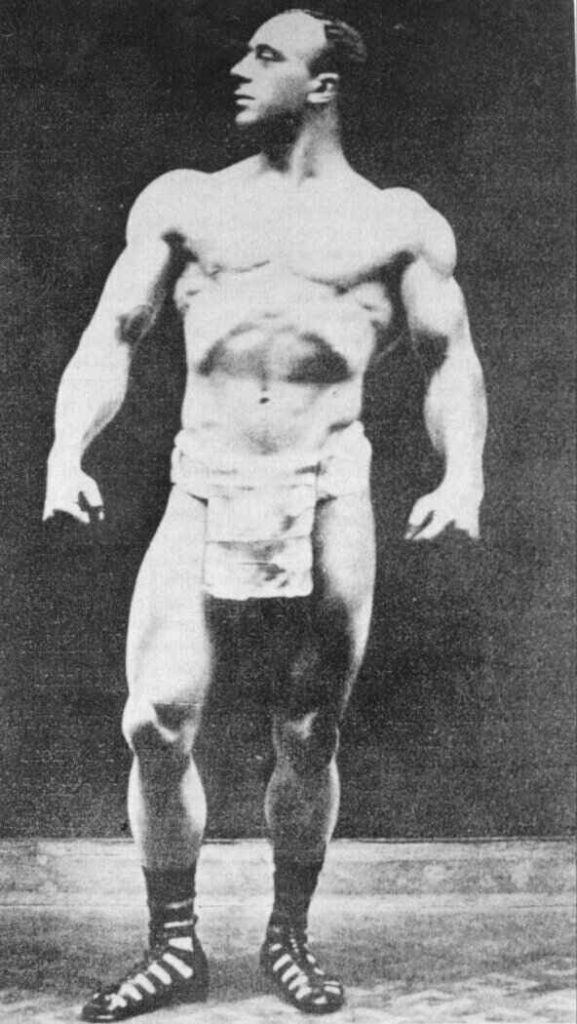
Max Sick:
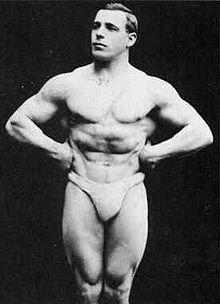
I don’t know about you, but these guys are quite an inspiration for me. And, keep in mind that, since that age, we’ve learned a lot about proper nutrition and training.
Today, we know much more. I’m positive that a natural lifter with the right knowledge can achieve just as good of a physique, if not better.
The one thing I want you to take away from this is:
Supplements are by no means good or bad. They are there to serve a specific purpose – to supplement the effort that already goes into training and diet.
With this being said, I'd also like to go over some of the most common supplement myths floating around.
The following green box is filled with the top 8 myths to look out for.
SUPPLEMENT MYTHS
There are a lot of popular misconceptions of what supplements are and what they do.
Moreover, there are a lot of people who are more than happy to spread these lies around.
Let’s take a look at some of the most popular gems:
Myth #1: Supplements are steroids.
There’s a general misconception that supplements like protein powder and creatine are steroids.
People who are not familiar with supplements and don’t know the first thing about lifting are usually the ones who believe this myth.
But, I’ve also come across fellow gym bros who do, as well.
First off, there is nothing similar between most supplements and actual steroids.
Second, steroids deliver much more noticeable results for muscle growth compared to a supplement.
And third, steroids carry much higher health risks. Comparing them to well-researched supplements like creatine and protein powder is wrong.
So no, supplements are nowhere near steroids for the results they can deliver and the risk they carry.
Myth #2: Latest & greatest formula is what is always best.
Certain supplements like creatine seem to be getting a facelift every 6 months. You can look around and I bet you’re going to see more than 10 variations of a simple supplement.
Most supplement companies try to hype up their ‘new formula’, claiming that it’s better than the previous. That usually results in more sales and more revenue.
But, what you need to understand is that these companies are biased. After all, that is their product they’re trying to sell.
Believing every word they say isn’t always in your best interest.
Understand that sometimes the ‘new and improved’ formula that costs more isn’t always best.
What you should do instead is look at the ingredients and dosages to make an informed decision.
Just because they slap a shiny new label and charge more doesn’t mean it’s going to benefit you more.
Myth #3: The more expensive it is, the better.
This kind of ties in with the previous myth but the difference here is the product doesn’t have to be newer.
Certain supplements have more expensive variations and a famous example of that is creatine.
Because there are so many supplements out there, I won’t try to cover any of them. I’ll give creatine as an example:
We start with a simple and effective creatine monohydrate. Then we move to buffered creatine, and then ethyl ester, and liquid, and get to a dozen or more forms of it.
And we assume that a tub of creatine that costs $50 is better than the one that costs $20.
Again, instead of looking at the price tag, look at the ingredients and dosages. Moreover, look at what studies have to say on the matter.
More often than not, the difference isn’t significant, if any.
Myth #4: If an ingredient is listed on the label, that’s all you need to know.
Supplement companies have to list the ingredients (and quantity) of each product they sell. But, due to limited funds in organizations like the FDA (in the USA), they don’t check whether what’s on the label is in the product, too.
There are some independent nutrition product testing services such as ConsumerLab.com. There, manufacturers can pay to have their products tested and confirm that the formula is what it’s supposed to be.
I recommend buying your products from established brands with their own quality-assurance testing. Also, products with a certified seal such as the USP seal or certification from ConsumerLab.com – or another established brand.

Myth #5: Supplements are good replacements to whole foods.
I get asked this question often:
“What percentage of my calories should come from supplements?”
And my usual answer is about 10 to 20% of the total calorie intake for the day. It might seem low to some of you but I consider it to be the most anyone should take in a day.
I’m not saying that supplements are bad or unneeded but I don’t want you to rely on them too much to hit your calories and macronutrients.
Get 10 to 20% of your calories from supplements and leave the rest to whole foods. Otherwise, you’d be starving your body from the essential vitamins and minerals found in real foods.
Myth #6: Protein powder makes you gain fat.
For some reason, there are people who believe that protein powder can cause fat gains. I’m here to tell you that this is not true, at all.
First off, protein is the most satiating macronutrient of all. I always bump my intake when I’m in a fat loss phase. It helps with hunger control.
Second, to gain fat, you need to be in a caloric surplus. Meaning, you need to be eating more calories than your body burns. Only then can your body have ‘left over’ energy to store as fat.
The mere consumption of protein powder (or any other macronutrient, supplement, food or drink) in itself won’t cause fat gain.
Myth #7: Creatine causes kidney issues.
I won’t dig too deep into this one. Creatine is the most popular and researched supplement there is.
It has been around since the early 70s and it’s proven to work. It has also proven to be harmless to people with healthy and functioning kidneys.
You can read more about this popular myth getting debunked here and here.
Myth #8: If a huge and shredded guy says he takes it, you should too.
Time and time again I come across all types of supplements from different companies with one thing in common:
A shiny label with a big, shredded dude making a mean face and flexing.
Look, I’m not against the dude. He’s worked hard to attain his physique but attributing it to a single product makes me sick.
“Thanks to product XYZ, I now have a six pack for the summer!”
Well, maybe not that obvious. But watching fitness models review product makes me feels like I’m at a used car dealership.
I get that it’s a marketing tactic and it increases sales but don’t fall for the trap. Don’t think that because some jacked guy supposedly takes a product, it’s actually good and will benefit you.
The person could be on steroids. They could be lying about taking it. And they’ve most likely been training for at least a decade to achieve that look.
Chapters

Download a FREE PDF version of this fitness supplements guide.
(PDF contains all chapters and resources + bonus chapter: Supplement Recommendations from trusted brands)
Leave a Reply